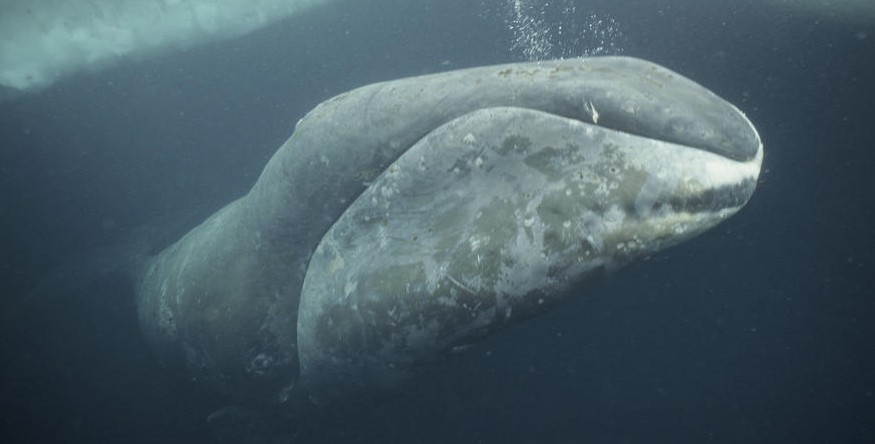Aging and longevity varies across the Earth’s species, and some scientists are seeking for an ability to improve health in humans by learning from the genes of other animals. The bowhead whale gene was recently mapped by UK researchers who believe various genetic “tricks” that allow the whale to live up to 200 years can be learned and potentially “performed” by human genes.
“I study aging and longevity to ultimately develop interventions that preserve health and combat disease by manipulating the aging process,” Dr. Joao Pedro de Magalhaes of the University of Liverpool and author of the study, told The Speaker.

“Thus for several years I’ve been interested in the bowhead whale as the longest lived mammal. I think that having the genome sequence of the bowhead whale will allow researchers to study basic molecular processes and identify maintenance mechanisms that help preserve life, avoid entropy, and repair molecular damage. This is a different approach in biomedical research. Most research on human diseases is usually based on animal models that develop the disease under study at a higher incidence and rate than normal. The use of disease-resistant organisms to identify genes, mechanisms and processes that protect against–rather than cause–disease is an unexplored paradigm.”
Aging, Magalhaes points out, has a profound effect on human society as well as medicine, but is one of the major puzzles of biology. In his ongoing work at the Integrative Genomics of Aging Group, Magalhaes is seeking greater understanding of the mechanisms of aging–cellular, molecular and genetic–and he believes the field in which his research takes place holds more potential to improve health than any other biomedical field.
In the latest work, the Liverpool University team investigated the bowhead whale gene in order to find, as Magalhaes phrases it, genetic “tricks” that provide for longer and healthier life.
“In particular, we discovered changes in bowhead genes known to be related to cell cycle, DNA repair, cancer, and aging that suggest alterations that may be biologically-relevant. So my own view is that this points toward improved DNA repair and cell cycle regulation mechanisms to prevent DNA damage accumulation during the lifescourse which in turn promotes longevity and resistance to age-related diseases. But a lot more work is still necessary to prove this.”
The report on Magalhaes work, “Insights into the evolution of longevity from the bowhead whale genome,” was recently published in the journal Cell Reports.
Read more: Genome mapped for bowhead whale, which can live 200 years
